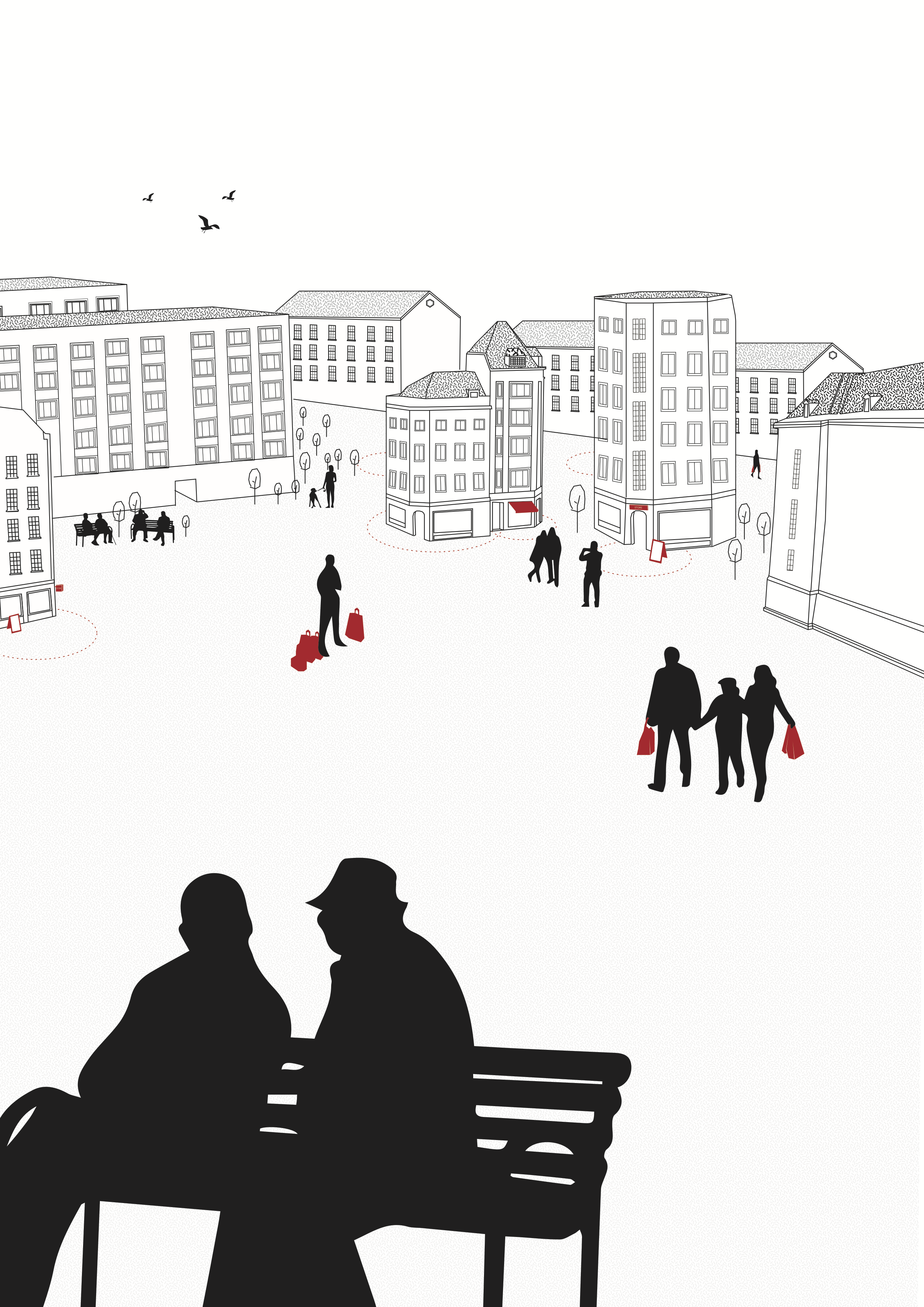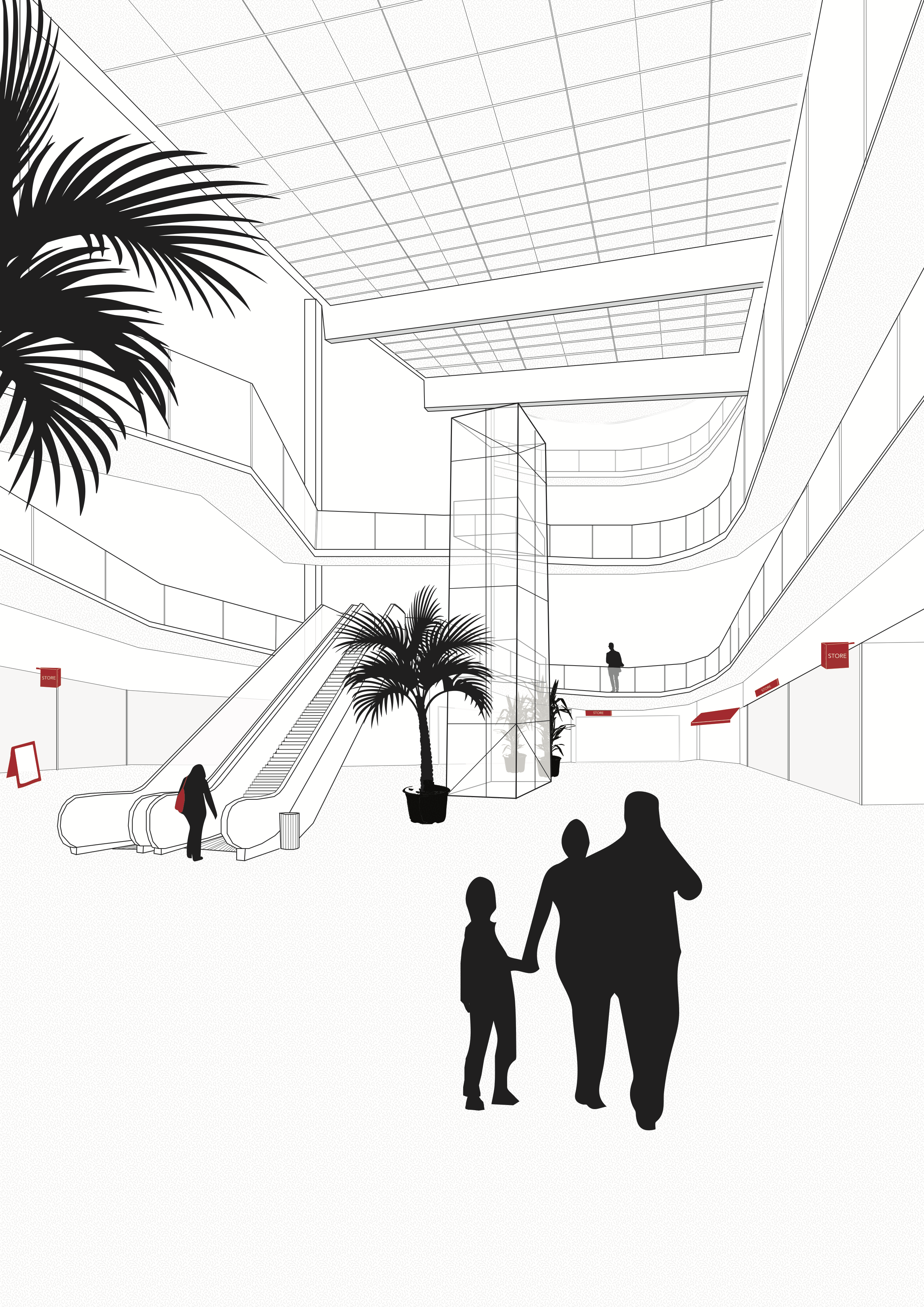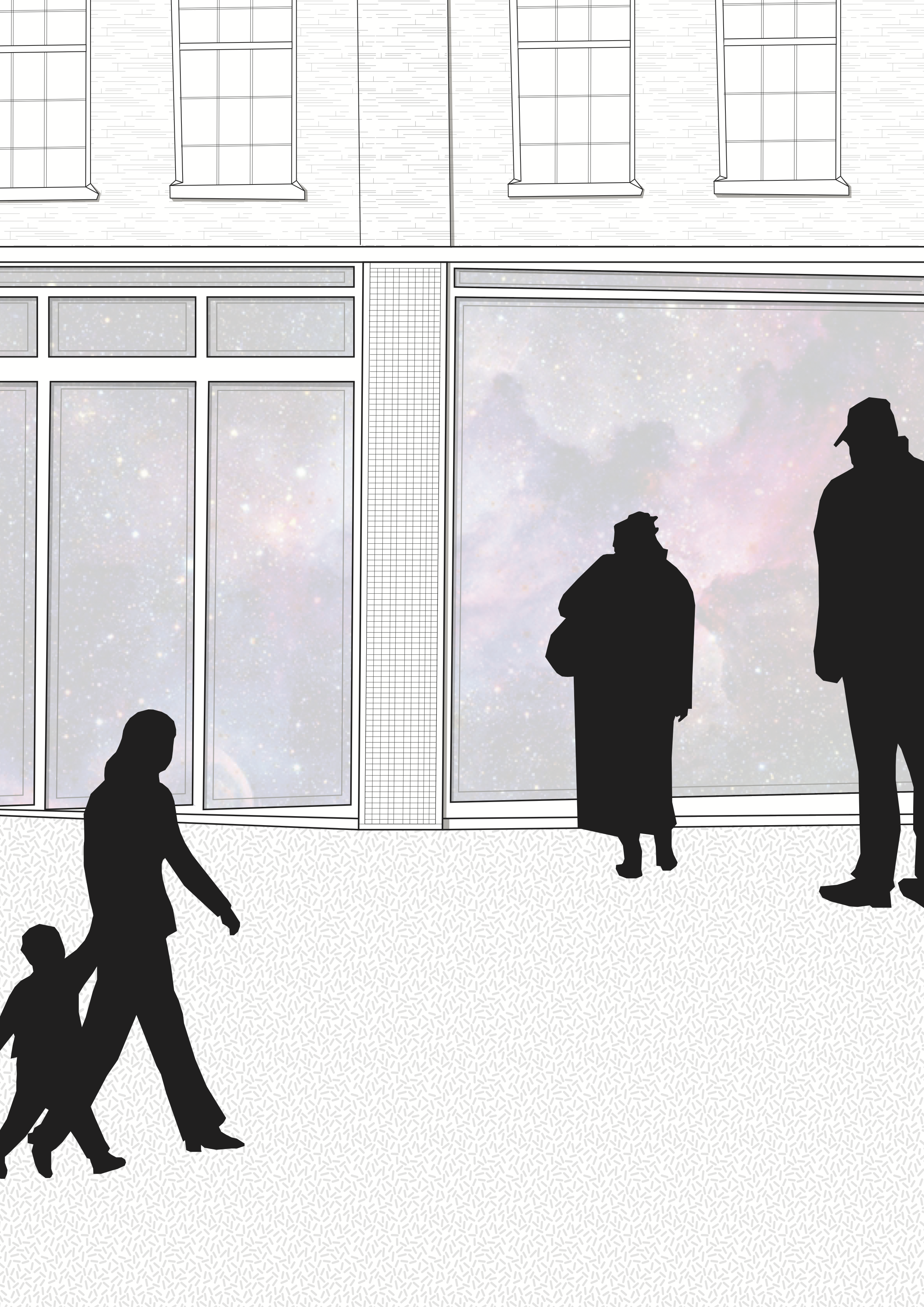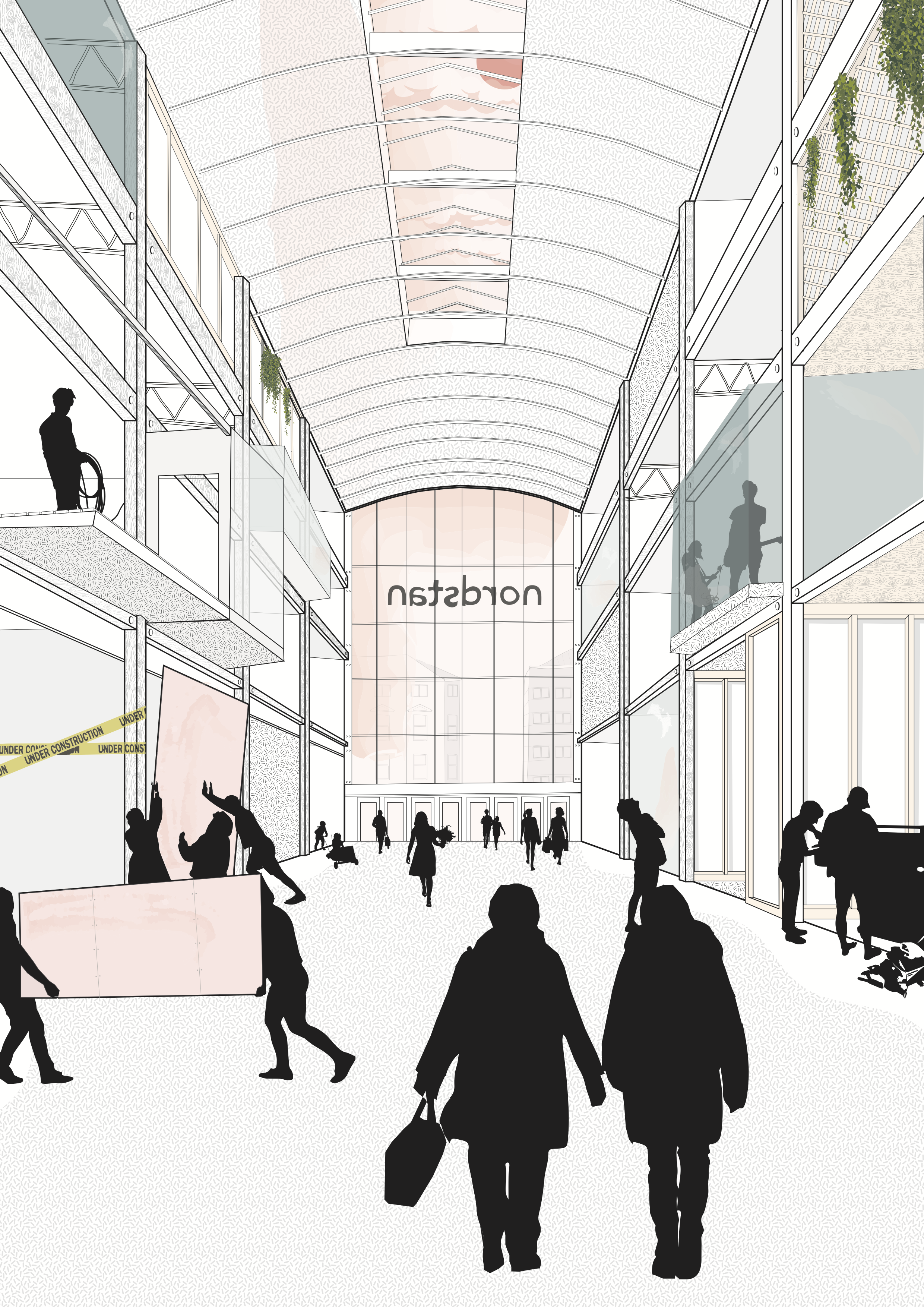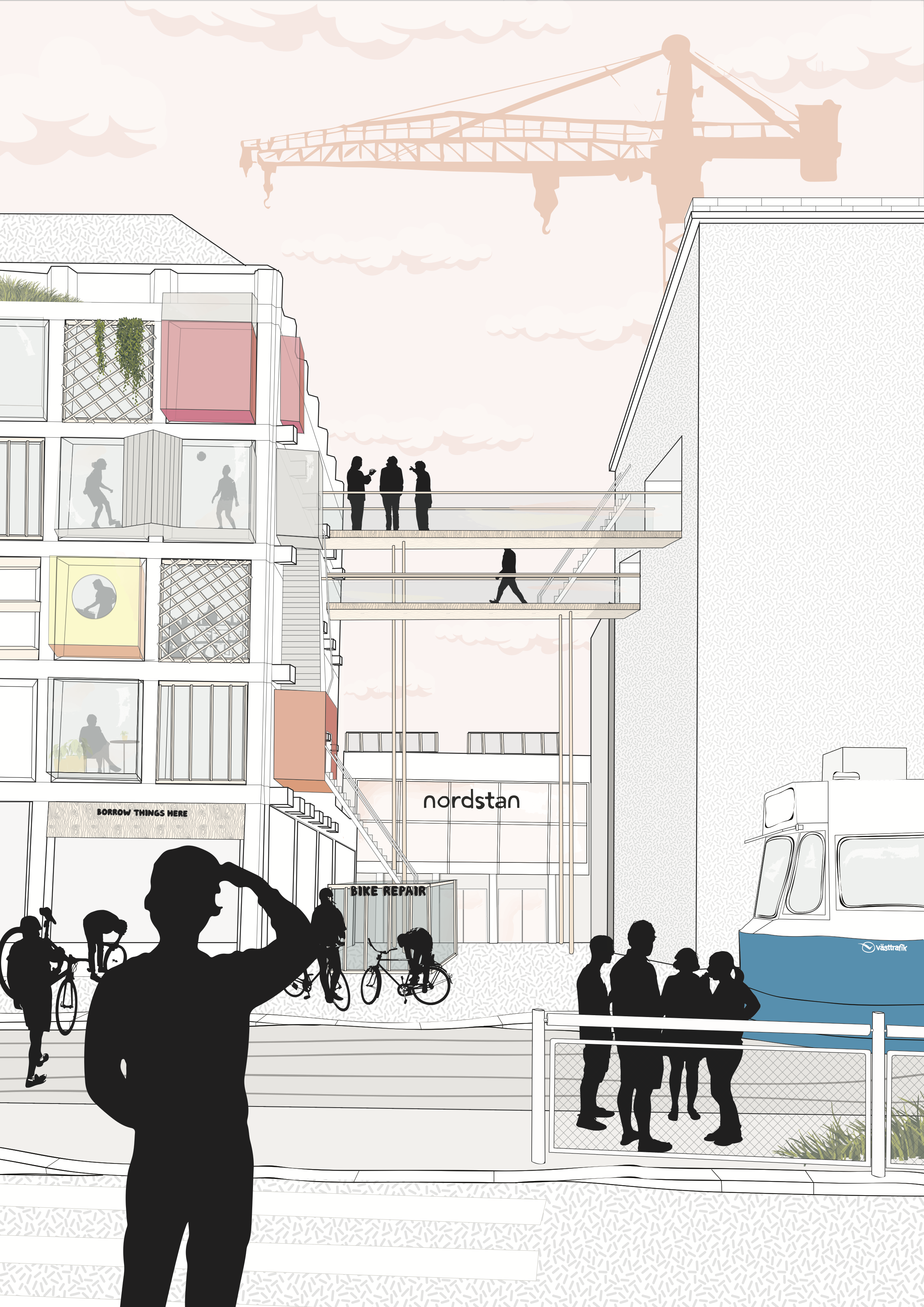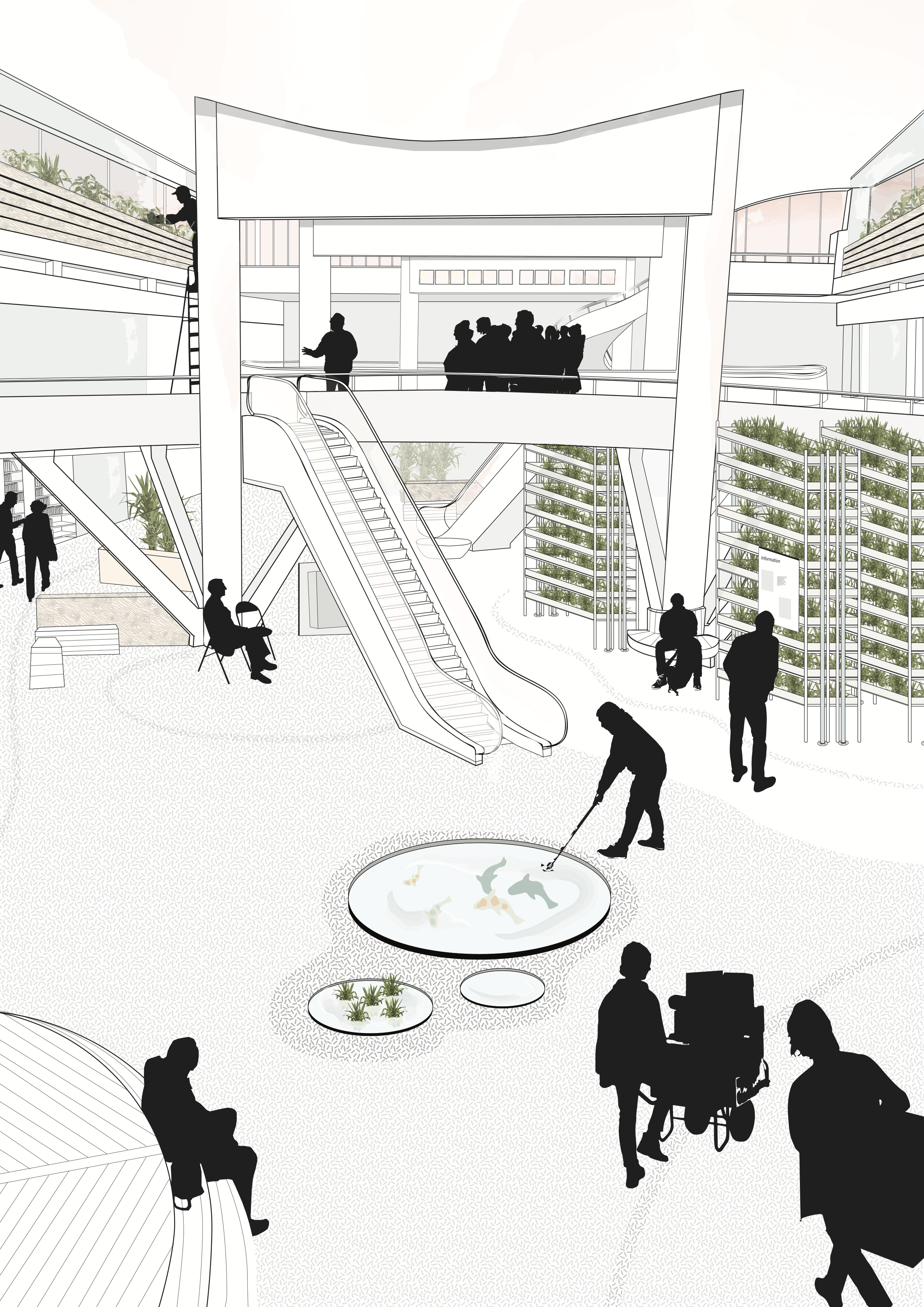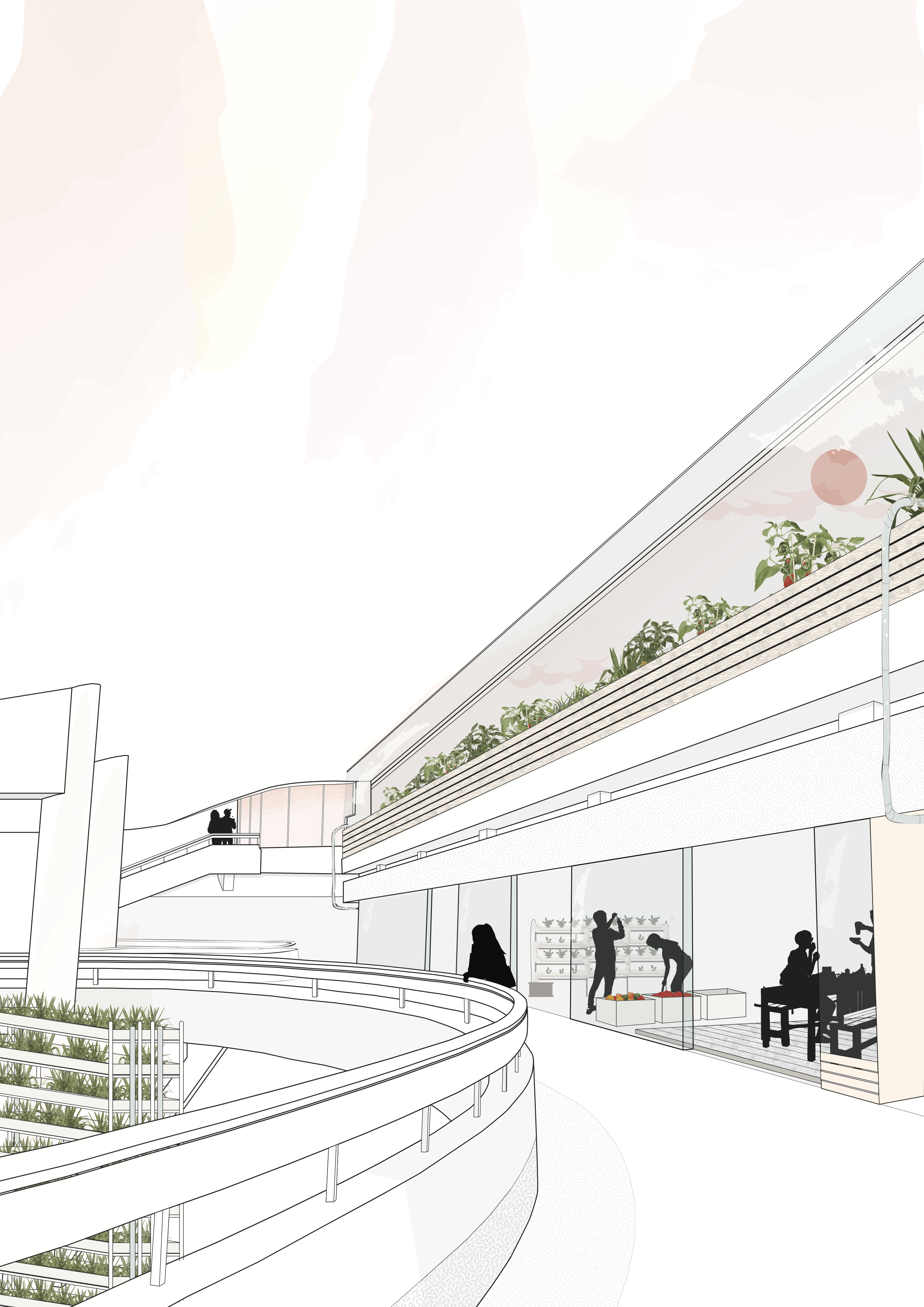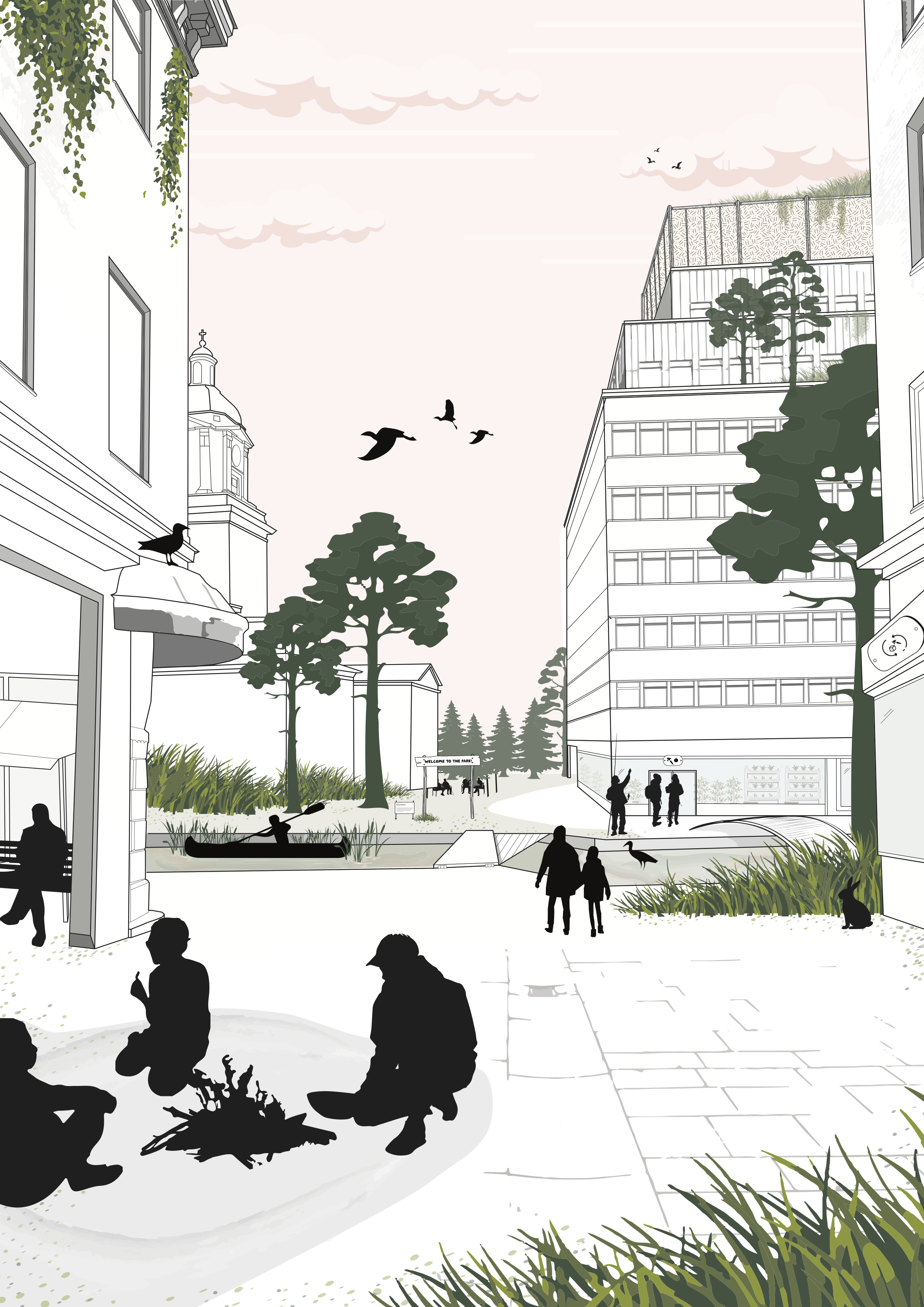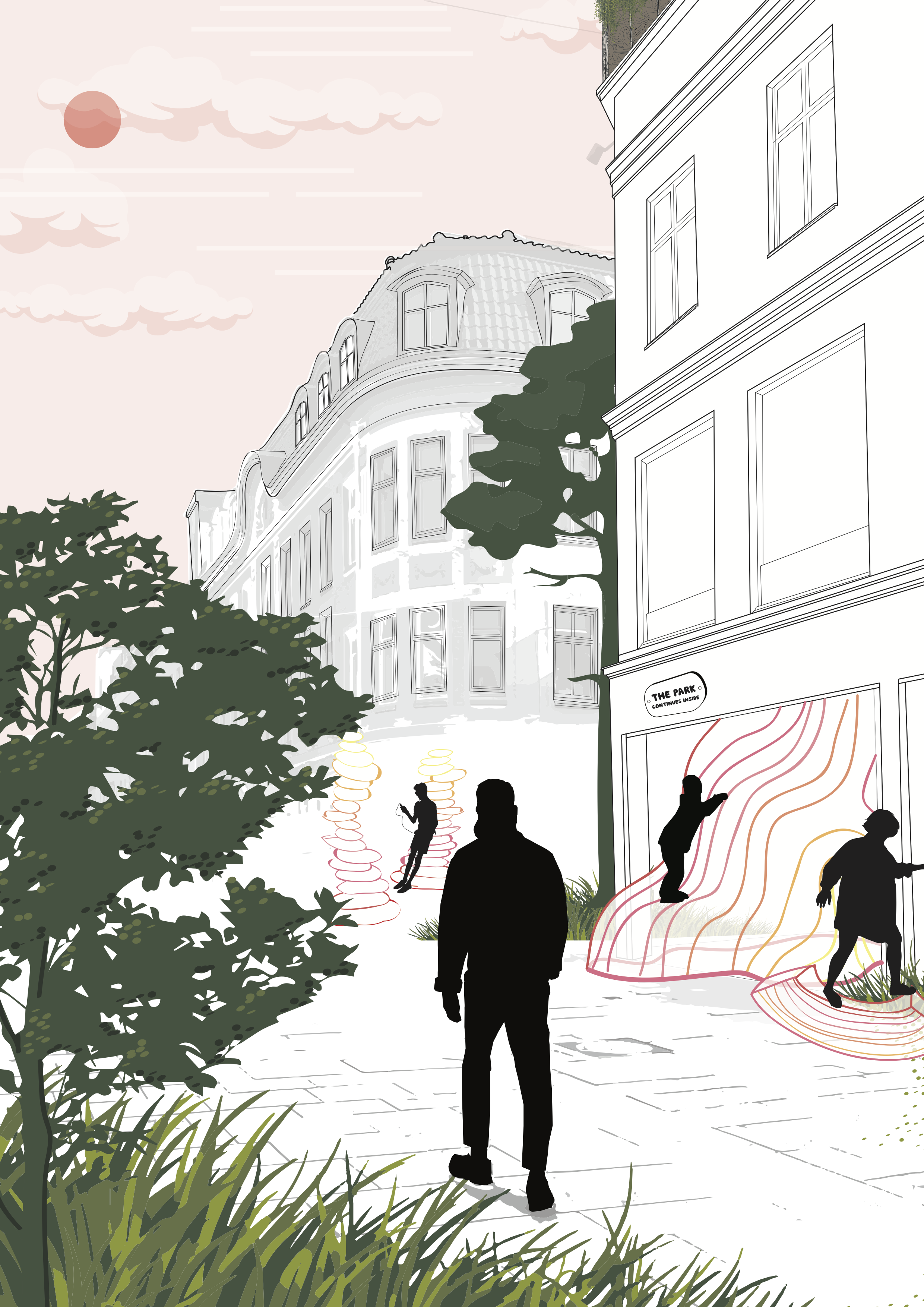REDESIGNING COMMERCIAL PUBLIC LIFE
design for urbanity beyond consumption
We are facing a climate emergency, and the planet is in need of a change. It is well known that overconsumption is not only affecting us as individuals, but also the climate in a harmful way. So the aim for this master thesis began with me thinking: what will happen to all this space that is dedicated to shopping today? And what function can take its place?
As you know, shopping is nothing new, and because urban development is intertwined with retail development, it can be hard to imagine a city without it. Retail and shopping is an obvious part of our everyday life. Especially if you live in a city. Shopping is everywhere; museums, train stations, schools. Retail has evolved to focus more about branding, identity and belonging, and the constant search for something new. Where urbanity is something that can be consumed, where we go from being citizens to becoming consumers. I want to highlight an architectural discourse about another future development. A future of degrowth.
The aim is to analyse how physical shopping and retail space perform as a social function today. This will be done through literature studies and observations of environments in Gothenburg. The second aim of the master thesis is to propose a conceptual architectural implementation, with arguments and notions found through the theoretical and practical research. The design proposal should answer to the critical question of how a sustainable urban landscape can be developed for citizens and not consumers. Thereby how a social “marketplace” could be designed without the elements of retail.
Research questions:
1. What could happen to the social function if we remove the act of consumption in the physical public space?
2. How can the social function of shopping environments be transformed in a future of post-consumption?
3. How can degrowth be embodied/exemplified in a design proposal?
How can we redesign the city?
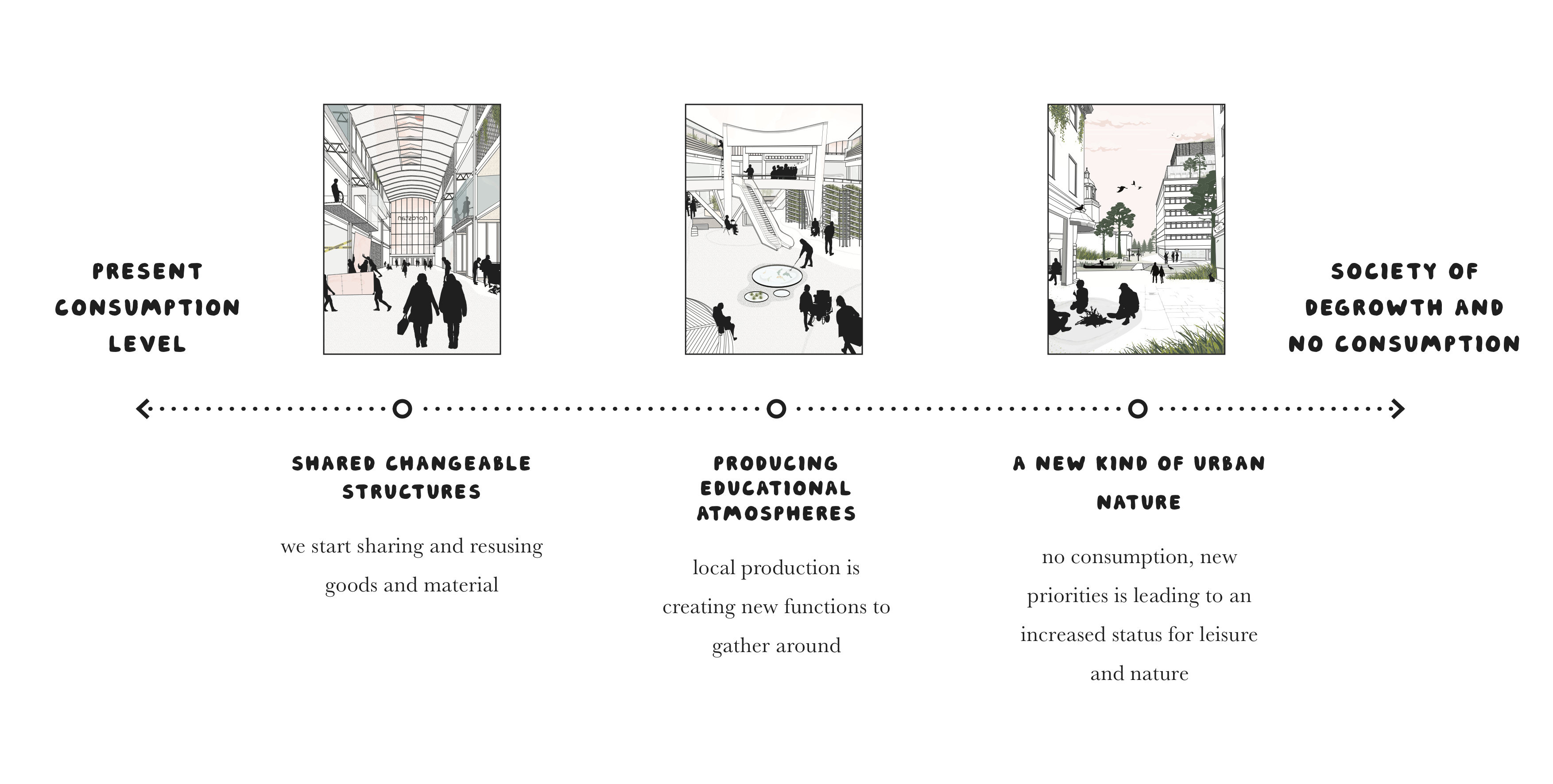
Setting the scene of post-consumption
The goal with degrowth design is here interpreted as a pursuit of increasing quality of life, without the focus and measurement of economic profit or growth. Mobility, welfare, health, culture, social gathering, and creative expression are all aspects which importance are likely to increase. The design implementations intend to reinforce positive aspects, on an otherwise so sombre issue of climate emergency and social stress. The intention is not to make a visionary proposal for a new urban landscape, but instead a change or addition to the actual city. In one way be realistic, while working with big conceptual strokes. With the focus on the everyday life-part of the project.
To tell the speculative story, an abstract timeline is used, also working as a scale of degrowth. Events possibly occurring after each other are placed on the timeline in a fictional scenario.

The first scenario is characterized by self-built and self-managed projects. It is set in a future where we have started to understand that an uncertain future requires flexible solutions. Decentralisation of the building process empowers the community and offers a solution for people to adjust the environment to the current needs, which creates an environment in constant transition. Reuse and sharing are key factors.
Nordstan is the object for redesign. The structure of the buildings are emptied to create a constructive grid. Facilities for shopping are extraordinarily suitable for this approach, because of their unusual emptiness and large open spaces. The module system is therefore a way to utilize the physical structure of shopping malls.

In the second scenario the production of food and goods is an increasing global problem. Decentralisation continues even further, and we are starting to become more self-sufficient. We find new functions to gather around. A high level of communal knowledge enables control over the production line, resilience and empowerment in the local community. This scenario is set in a future where consumption is no longer a leisure.
Frölunda Torg is the object for redesign. The indoor environment is still an important gathering point in the Swedish climate. The artificial climate of Frölunda Torg makes it a suitable place to create a comfortable environment for social and educational gathering.

The last scenario presents a future where the different types of nature are given a higher priority. From wilderness to parks. The scenario is set in a future where no kind of consumption is happening in the city (not material nor services). The focus is on free social activities, and democratization of art, culture and the public room.
Kungsgatan is the object for redesign. When Kungsgatan was a shopping street, it provided the quality of a promenade between display windows and interesting objects to look at. When the shopping and display windows disappear, the street becomes a sculpture park and open playground.
Nature is roaming free, and the movement in it is limitless. When economic growth and profit no longer is a priority, central plots do not have to be exploited as much and central parts can be used as a nature preserve. Creating a breathing space for animals and insects, contributing to vital ecosystem-services.
Conclusions
Through this master thesis, I can see, that speculative design is an appropriate option when raising these questions. To propose one vision or solution here is not possible, or even interesting, because of the question’s uncertain nature. But instead, to take on the challenge of imagining a future of degrowth.
Social functions
I have found that the social functions of shopping revolve around many different aspects, and often showing contradictory tendencies.
I have found that these environments can provide a sense of accessibility through the creation of user diversity, and more concrete through the addition of multiple functions which are targeting different groups. This is creating the feeling that one has a reason and justification to be there. But it can also create the opposite feeling, of exclusion, if one is not the targeted group.
I have also found how shopping environments provide a special social function through its atmosphere. This is often in the shape of a sheltered indoor environment, creating comfort and a place to socialize.
Shopping environments also provide a social function through the movement it enables and the liberating functions it has. Historically, it enabled the working class to access this social activity as well. The movement in the shopping mall, and its indoor climate, extended the informality of how we move through public environments.
The citizen
I have noticed how the notion of play and leisure is vital to the discussion of a development beyond consumption. Finding entertainment in new functions. There is a difference in future scenarios on how they deal with personal responsibility. Feeling of meaning is either connected to creative expression and social activity, or to collective work and production.
The city
Through the implementations I want to raise three main topics:
Flexibility is needed to be prepared for all futures. Flexible structures and building processes can create a democratic use of the city and efficient use of our resources.
Production needs to become more local and small-scale. Through education, awareness can be raised and create the best use of the collective knowledge.
Nature needs to get a higher priority in our cities.
I believe that the end of measuring growth, and thereby cities competing would bring more attention and priority to the citizens and environment, and in extension lead to a more free development of cities’ specific identity. Degrowth can therefore be seen as a solution to entrepreneurial urbanism and gentrification. To achieve this, we need to speculate and design new scenarios for the future. We need to redesign the commercial public life, and form the built environment to support urbanity beyond consumption.
Stina Nilsson
contact: stina.maria.nilsson@hotmail.com
